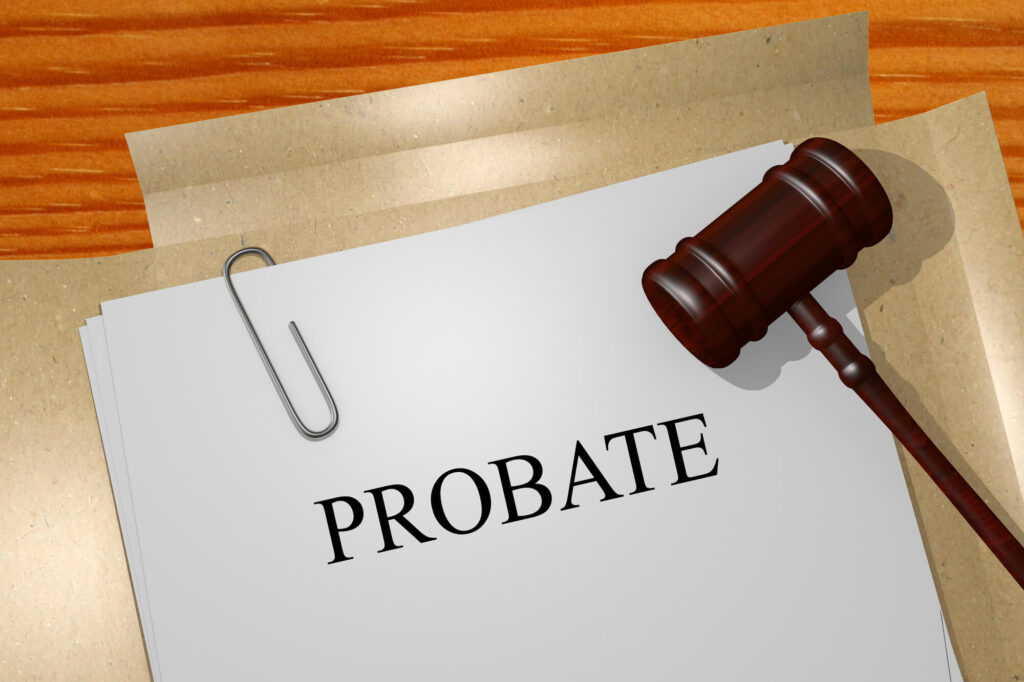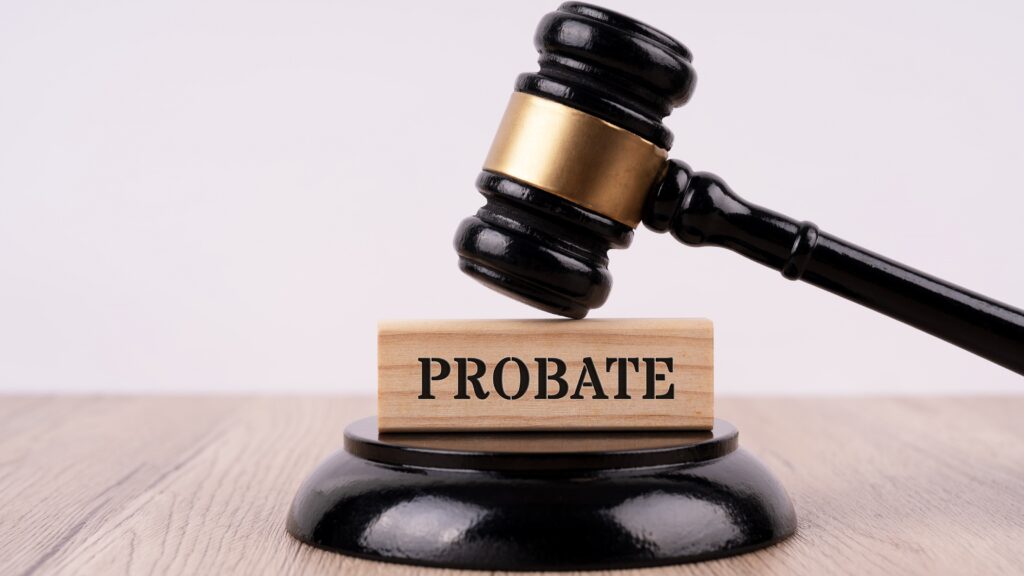When a spouse passes away, the surviving spouse often faces difficult decisions not only emotionally but legally as well. One common question is: Does a surviving spouse have a claim in probate Texas? The answer is yes, but it depends on various factors. Understanding the legal rights of a surviving spouse during the probate process is crucial. In this article, we’ll explore the rights of surviving spouses in Texas, breaking down the laws regarding property distribution, how probate works, and how to protect your spousal rights.
What Is Probate in Texas?
Before diving into the rights of a surviving spouse, let’s first look at the probate process. Probate is the legal procedure through which a deceased person’s estate is administered. This involves proving the validity of a will, if one exists, paying any debts, and distributing the remaining assets. If no will exists, the state will follow its intestate succession laws to determine how to distribute the estate.
In Texas, there are two types of probate procedures: independent probate and dependent probate. In independent probate, the court has minimal involvement, while in dependent probate, the court oversees the process more closely. The process can take months or even years to complete, depending on the complexity of the estate.
Does a Surviving Spouse Have a Claim in Probate Texas?
Now, let’s answer the big question: Does a surviving spouse have a claim in probate Texas? Yes, surviving spouses do have rights during the probate process. However, the extent of those rights depends on the type of property, whether the deceased had a will, and the overall circumstances of the estate.

1. Community Property vs. Separate Property
Texas is a community property state. This means that any property acquired during the marriage is typically considered community property and belongs equally to both spouses. In most cases, the surviving spouse is entitled to their half of the community property.
However, separate property is different. This is property owned by one spouse before the marriage or acquired through inheritance or as a gift. A surviving spouse doesn’t automatically inherit separate property unless it was specified in a will or trust.
Understanding these distinctions is crucial, as community property laws generally grant the surviving spouse a larger claim to the estate. However, in cases involving separate property, the distribution may be more complicated.
2. What Happens If There’s a Will?
If the deceased spouse left a valid will, the probate process typically follows their instructions for distributing property. However, a surviving spouse in Texas still has certain rights, regardless of what the will states.
Under Texas law, a surviving spouse has the right to claim their portion of the community property, even if the will leaves everything to someone else. The surviving spouse is also entitled to claim certain exemptions and allowances, which may include a share of the decedent’s separate property in some cases.
3. What Happens if There’s No Will (Intestate Succession)?
When a person dies without a will, Texas law dictates how the estate will be divided. If the deceased spouse had children, the surviving spouse is entitled to one-third of the separate property and one-half of the community property. If there are no children, the surviving spouse typically inherits the entire estate, both separate and community property.
Texas law provides specific protections to ensure the surviving spouse has a claim to the estate, even if the decedent did not leave a will.
Spousal Rights During the Probate Process
A surviving spouse’s rights don’t end with property division; they also play a role during the probate proceedings. Here’s what you can expect:
1. Community Property Rights
The surviving spouse has the right to claim their portion of the community property, which includes assets such as homes, vehicles, bank accounts, and retirement funds acquired during the marriage. These assets are divided equally between the surviving spouse and any other heirs. However, if the decedent made specific arrangements in a will, those instructions will be followed for the separate property.

2. Homestead Rights
In Texas, the surviving spouse also has special homestead rights. This means that the surviving spouse can remain in the family home, regardless of what the will or other heirs say. This right is particularly important because it ensures the surviving spouse can continue living in the home even if the decedent left it to others.
If the home is considered community property, the surviving spouse will typically retain ownership of their share. If the home is separate property of the decedent, the surviving spouse may still be entitled to occupy it.
3. Allowance for the Surviving Spouse
Texas law provides a surviving spouse allowance, which is a monetary sum to help the spouse with immediate needs. This allowance is typically set aside before the other debts of the estate are paid. The amount of the allowance can vary, but it is usually between $15,000 and $20,000. The surviving spouse can use this money for living expenses, funeral costs, or other immediate needs.
4. Elective Share in Case of Will Contests
If the surviving spouse feels that the will does not provide them with an adequate portion of the estate, they have the right to contest the will. In Texas, the surviving spouse has the option to claim a portion of the estate’s assets, even if the decedent’s will does not provide for them as expected. This is known as an elective share.
The elective share is designed to protect the surviving spouse from being disinherited and ensures that they receive a fair portion of the estate. The surviving spouse can opt for a larger share, typically one-third of the estate’s value, depending on the circumstances.
When Can a Surviving Spouse Be Disinherited?
In certain cases, a spouse may be disinherited from the will. Texas law allows a person to leave their property to whomever they choose, but the surviving spouse has rights that cannot be easily waived.

1. Prenuptial Agreements
A prenuptial agreement can be used to specify how assets will be divided upon death. If a valid prenuptial agreement is in place, the surviving spouse may not be entitled to the decedent’s property beyond what was stipulated in the agreement.
2. Exclusion from the Will
In some cases, a decedent may intentionally exclude their spouse from the will. While this is allowed in Texas, the surviving spouse can still claim their statutory rights to community property and may contest the will if they believe it’s unfair or was created under duress or without proper mental capacity.
The Probate Process: What to Expect
Once the decedent passes away, the surviving spouse should expect the probate process to begin. This involves a number of legal procedures, including:
1. Filing the Will (if applicable)
If the decedent left a valid will, it must be filed with the court. The probate court will oversee the process, and the surviving spouse may need to participate in hearings and provide documentation regarding the estate.
2. Appointment of Executor
If the decedent named an executor in their will, that person will be responsible for managing the estate. If there is no will, the probate court will appoint an administrator. The surviving spouse can often request to be the administrator, especially if they are the primary heir.
3. Payment of Debts and Distribution of Assets
The estate’s debts will need to be settled before assets are distributed to the heirs. Once the debts are paid, the estate can be divided according to the will or Texas intestate succession laws. The surviving spouse will receive their share of both community and separate property.
Common Disputes in Probate
Even though Texas law provides clear guidelines on surviving spouse rights, disputes can arise during probate. Here are some common issues that may lead to conflict:
1. Will Contests
If the surviving spouse believes that the will is invalid or was made under undue influence, they may contest the will in court. This can be a complex and lengthy process that requires legal expertise.
2. Disputes Over Community Property
In cases where the decedent and surviving spouse had joint property, there may be disagreements over how to divide the assets. If children from a prior marriage or other heirs are involved, this can further complicate matters.
3. Failure to Honor Spousal Rights
In some cases, executors may fail to honor the surviving spouse’s rights to property or allowances. If this happens, the surviving spouse may need to take legal action to assert their rights.
How to Protect Your Rights as a Surviving Spouse
To ensure your rights are protected during probate, here are a few key steps to take:
- Work with a Probate Attorney: A probate attorney can help you understand the legal process and ensure your rights are respected. They can also assist in contesting a will if necessary.
- Document Everything: Keep thorough records of your marriage, assets, and any communications with the executor or other heirs. This will help protect your rights if a dispute arises.
- Stay Involved: Actively participate in the probate process. Attend hearings, communicate with the executor, and ensure that the estate is administered fairly.
Conclusion
So, does a surviving spouse have a claim in probate Texas? The answer is yes, but the extent of that claim depends on several factors, such as the type of property involved and whether there’s a valid will. Surviving spouses in Texas are generally entitled to half of the community property and may have rights to separate property depending on the circumstances. However, disputes can arise, and it’s crucial to understand the legal framework and protections available to ensure your rights are preserved.
If you are a surviving spouse, it’s wise to consult a probate attorney to navigate the complexities of the process and ensure that you receive your fair share. By understanding your rights and staying involved, you can help prevent conflicts and ensure a smooth probate process.








